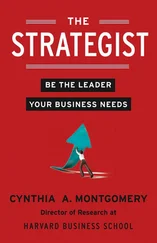“Okay,” he said.
“Do you want a fish fillet or chicken with your rice pilaf?”
“Chicken.”
She opened the refrigerator. The top shelf was stacked with plastic bottles of juiced organic spinach. Cans of herbal tea had filled that space two weeks ago, when Neil was reading Herbal Drinks for Children , and before that, it was soy beverages, and before that, protein shakes for growing bones. The juiced spinach would go soon, Kamara knew, because when she arrived this afternoon, the first thing she noticed was that A Complete Guide to JuicingVegetables was no longer on the counter; Neil must have put it in the drawer over the weekend.
Kamara brought out a package of organic chicken strips. “Why don’t you lie down for a bit and watch a movie, Josh,” she said. He liked to sit in the kitchen and watch her cook, but he looked so tired. The four other Read-A-Thon finalists were probably as tired as he was, their mouths aching from rolling long, unfamiliar words on their tongues, their bodies tense with the thought of the competition tomorrow.
Kamara watched Josh slot in a Rugrats DVD and lie down on the couch, a slight child with olive skin and tangled curls. “Half-caste” was what they had called children like him back in Nigeria, and the word had meant an automatic cool, light-skinned good looks, trips abroad to visit white grandparents. Kamara had always resented the glamour of half-castes. But in America, “half-caste” was a bad word. Kamara learned this when she first called about the babysitting job advertised in the the Philadelphia City Paper: generous pay, close to transportation, car not required. Neil had sounded surprised that she was Nigerian.
“You speak such good English,” he said, and it annoyed her, his surprise, his assumption that English was somehow his personal property. And because of this, although Tobechi had warned her not to mention her education, she told Neil that she had a master’s degree, that she had recently arrived in America to join her husband and wanted to earn a little money babysitting while waiting for her green card application to be processed so that she could get a proper work permit.
“Well, I need somebody who can commit until the end of Josh’s school term,” Neil said.
“No problem,” Kamara said hastily. She really should not have said that she had a master’s degree.
“Maybe you could teach Josh a Nigerian language? He already has French lessons two times a week after school. He goes to an advanced program at Temple Beth Hillel, where they have entrance exams for four-year-olds. He’s very quiet, very sweet, a great kid, but I’m concerned that there aren’t any biracial kids like him at school or in the neighborhood.”
“Biracial?” Kamara asked.
Neil’s cough was delicate. “My wife is African-American and I’m white, Jewish.”
“Oh, he’s a half-caste.”
There was a pause and Neil’s voice came back, thicker. “Please don’t say that word.”
His tone made Kamara say “Sorry,” although she was not sure what she was apologizing for. The tone, too, made her certain that she had lost her opportunity for the job, and so she was surprised when he gave her the address and asked if they could meet the following day. He was tall and long-jawed. There was a smooth, almost soothing quality to his speech that she supposed came from his being a lawyer. He interviewed her in the kitchen, leaning against the counter, asking about her references and her life in Nigeria, telling her that Josh was being raised to know both his Jewish and African-American backgrounds, all the while smoothing the silver sticker on the phone that said NO TO GUNS. Kamara wondered where the child’s mother was. Perhaps Neil had killed her and stuffed her in a trunk; Kamara had spent the past months watching Court TV and had learned how crazy these Americans were. But the longer she listened to Neil talk, the more certain she was that he could not kill an ant. She sensed a fragility in him, a collection of anxieties. He told her that he was worried that Josh was having a hard time with being different from the other children in his school, that Josh might be unhappy, that Josh didn’t see enough of him, that Josh was an only child, that Josh would have issues about childhood when he was older, that Josh would be depressed. Halfway through, Kamara wanted to cut him short and ask, “Why are you worrying about things that have not happened?” She didn’t, though, because she was not sure she had the job. And when he did offer her the job — after school until six thirty, twelve dollars an hour paid in cash — she still said nothing, because all he seemed to need, desperately need, was her listening and it did not take much to listen.
Neil told her that his method of discipline was reason-based. He would never smack Josh, because he did not believe in abuse as discipline. “If you make Josh see why a particular behavior is wrong, he’ll stop it,” Neil said.
Smacking is discipline, Kamara wanted to say, and abuse is a different thing. Abuse was the sort of thing Americans she heard about on the news did, putting out cigarettes on their children’s skin. But she said what Tobechi had asked her to say: “I feel the same way about smacking. And of course I will use only the discipline method you approve of.”
“Josh has a healthy diet,” Neil went on. “We do very little high-fructose corn syrup, bleached flour, or trans fat. I’ll write it all out for you.”
“Okay.” She was not sure what the things he had mentioned were.
Before she left, she asked, “What of his mother?”
“Tracy is an artist. She spends a lot of time in the basement for now. She’s working on a big thing, a commission. She has a deadline….” His voice trailed off.
“Oh.” Kamara looked at him, puzzled, wondering if there was something distinctly American she was supposed to understand from what he had said, something to explain why the boy’s mother was not there to meet her.
“Josh isn’t allowed in the basement for now, so you can’t go down there, either. Call me if there are any problems. I have the numbers on the fridge. Tracy doesn’t come up until the evenings. Scooters delivers soup and a sandwich to her every day and she’s pretty self-sufficient down there.” Neil paused. “You have to make sure you don’t bother her for anything whatsoever.”
“I have not come here to bother anybody,” Kamara said, a little coldly, because he suddenly seemed to be speaking to her as people spoke to housegirls back in Nigeria. She should not have allowed Tobechi to persuade her to take this common job of wiping the buttocks of a stranger’s child, she should not have listened when he told her that these rich white people on the Main Line did not know what to do with their money. But even as she walked to the train station nursing her scratched dignity, she knew that she had not really needed to be persuaded. She wanted the job, any job; she wanted a reason to leave the apartment every day.
And now three months had passed. Three months of babysitting Josh. Three months of listening to Neil’s worries, of carrying out Neil’s anxiety-driven instructions, of developing a pitying affection for Neil. Three months of not seeing Tracy. At first Kamara was curious about this woman with long dreadlocks and skin the color of peanut butter who was barefoot in the wedding photo on the shelf in the den. Kamara wondered if and when Tracy left the basement. Sometimes she heard sounds from down there, a door slamming shut or faint strains of classical music. She wondered whether Tracy ever saw her child. When she tried to get Josh to talk about his mother, he said, “Mommy’s very busy with her work. She’ll get mad if we bother her,” and because he kept his face carefully neutral, she held back from asking him more. She helped him with homework and played cards with him and watched DVDs with him and told him about the crickets she used to catch as a child and basked in the attentive pleasure with which he listened to her. Tracy’s existence had become inconsequential, a background reality like the wheezing on the phone line when Kamara called her mother in Nigeria. Until Monday of last week.
Читать дальше











